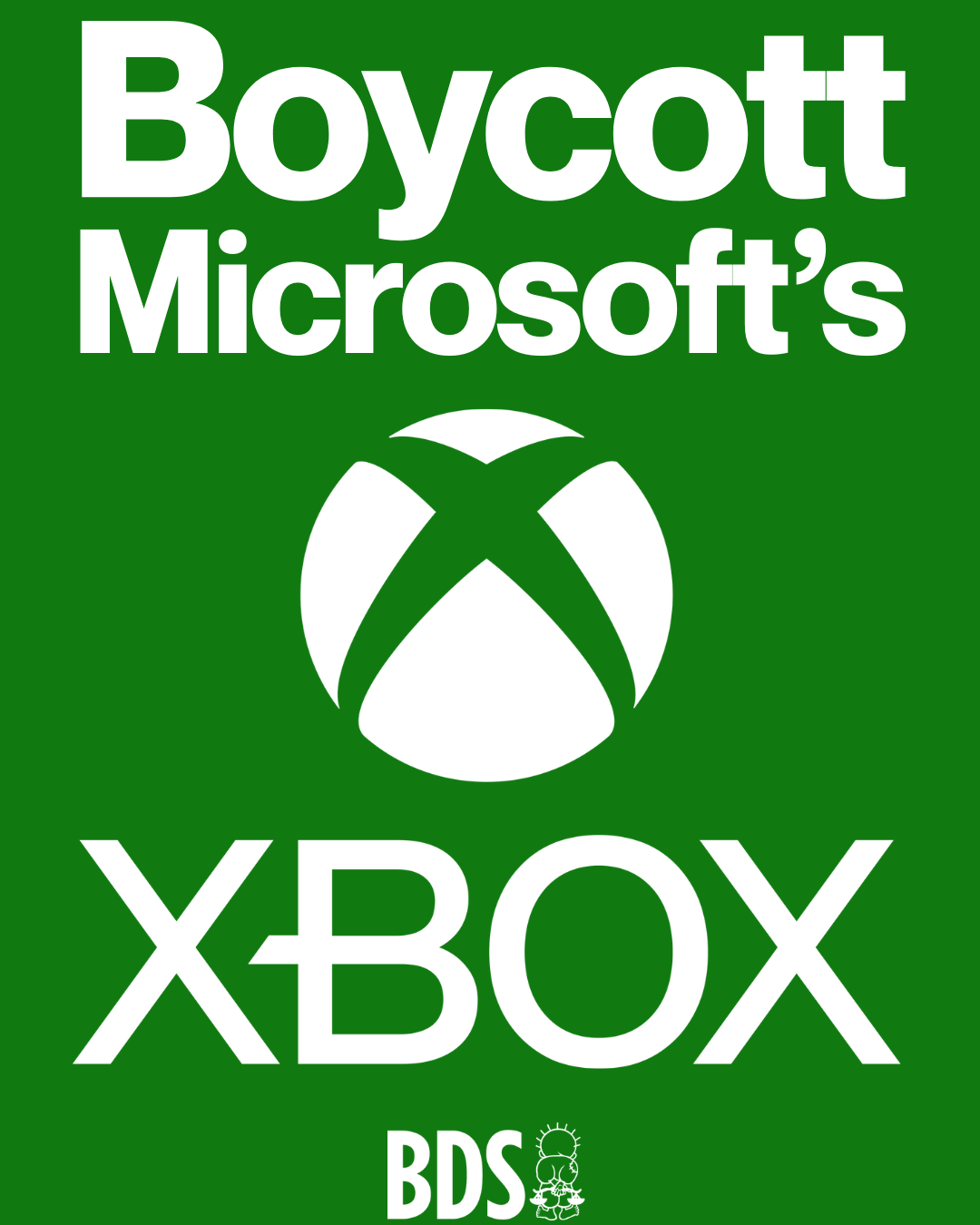Okay, it’s been roughly a day since the BDS National Committee announced a boycott of Microsoft via their Xbox console and subscription services, as well as the major studios that sit under Microsoft control. There has been a lot of discourse about who this boycott will hurt, what it will or will not accomplish, etc., and I think we need to talk about it.
Despite occasionally being thought of as the uncool redheaded stepchild of Apple and Google, Microsoft is in actuality the second-largest company in the world by market cap. Microsoft is ubiquitous in various areas of our lives, from the computers we use to the productivity software our jobs force on us. Much like Apple, Microsoft relies on economic inertia and public perception to maintain its near-monopoly on these aspects of our lives—the idea that their software and increasingly hardware as well “just work,” the necessity of understanding and interacting with their systems, the unavoidable pain in the ass of having to account for and support their data types. By positioning themselves as indispensable to governments and other, smaller corporations, their power grows.
According to the BDS movement, this same indispensable nature is a weakness to exploit. If Microsoft can be convinced to cease its contracts in Israel, this would, it’s thought, effectively cripple the country’s surveillance and repressive capabilities. It would make it much harder, if not impossible, for Israel to keep up their ongoing genocide against Palestinians in Gaza.
So how do you convince a company like Microsoft to do this? You find a weak point in its economic armor and you attack it. If we are unable to stop using Microsoft products and services at work, we sure as shit can stop using them at home. One way to do this is to stop giving them money for Game Pass, stop playing their most popular (and lucrative) mobile, console and PC games, and to stop buying Xbox products and games from Microsoft-owned studios.
The problem here is that there are a lot of Microsoft-owned game studios, and not all of them are Activision-Blizzard or Bethesda. An argument against the boycott has been that we’re putting a lot of companies that are innocent of any direct involvement in Israel’s ongoing genocide under fire. Microsoft Game Studios consists of 14 smaller studios; ZeniMax owns five; Activision-Blizzard-King owns 11. This is in addition to these larger companies’ own various studio offices around the world. Asking people to essentially stop supporting the work of 30 studios at once is an especially difficult thing to do in this particular moment in the games industry. The argument goes that we are directly hurting the very workers we need to be supporting right now just to indirectly hurt a company that, at the end of the day, probably won’t even care.
A specific example being thrown out there is South of Midnight, developed by Compulsion Games. By all accounts the game is a banger, a rich depiction of Southern folklore and mysticism coupled with throwback platforming and action combat. It is also a game facing intense unwarranted criticism by various chudlords in the anti-woke/DEI scene because Sweet Baby Inc. was involved in the game’s development (and also likely just because it features a Black woman lead). It’s likely the same kind of risky, inventive gaming investment that was made by Tango Gameworks with Hi-Fi RUSH, and we all saw how that worked out for Tango. The argument goes that if we don’t support Compulsion and South of Midnight, the studio will be closed and we just won’t get these kinds of experiences anymore.
Here’s the thing: whether a Microsoft-owned studio lives or dies, whether people get fired or shuffled around to other studios at will, none of that is in our direct control, consumer or worker. Remember that Hi-Fi RUSH was a hit. Remember that Microsoft swore up and down that Hi-Fi RUSH satisfied their sales expectations. Remember that Microsoft fucking shuttered Tango Gameworks anyway.
Workers are also not agentless beings, forced to toil at Microsoft-run studios with absolutely no say or voice. The whole reason Microsoft and Xbox were added to the BDS list is because Microsoft fired employees agitating internally for the company to stop working in Israel under the campaign “No Azure for Apartheid.” People of conscience at other MS-owned studios can join that effort, and on top of that, they can and should unionize – I heard there was a brand new industrial union for the games industry that started at GDC 2025, that might be worth looking into, as a thought. It’s time for everyone – worker, consumer, gamer – to realize and understand that these struggles are not separate and isolated; they’re connected in vital ways. The only one that can hurt the worker here is the boss, and by that same token, we can hold the boss’s feet to the fire.
Ultimately, at the end of the day the BDS movement is a voluntary one. You do not have to take the pledge to boycott Microsoft or any of the other companies and institutions on its list. It does not represent the moral terminus of the discourse around supporting Palestine/opposing Israel. If you’re providing material support to people in Gaza, for example, that’s great. BDS is an attempt to build mass power and global solidarity through the easiest avenues available to us: the economic. This doesn’t preclude other approaches by any means; but actively trying to dissuade people from doing what they believe is right in this case does look an awful lot like complicity to me. At the end of the day, whether we do or don’t support Microsoft-owned studios has no bearing on what Microsoft does with those studios; but if enough of us decide to no longer support the larger company for long enough, we genuinely might be able to secure the Palestinians a little more peace.

Leave a Reply